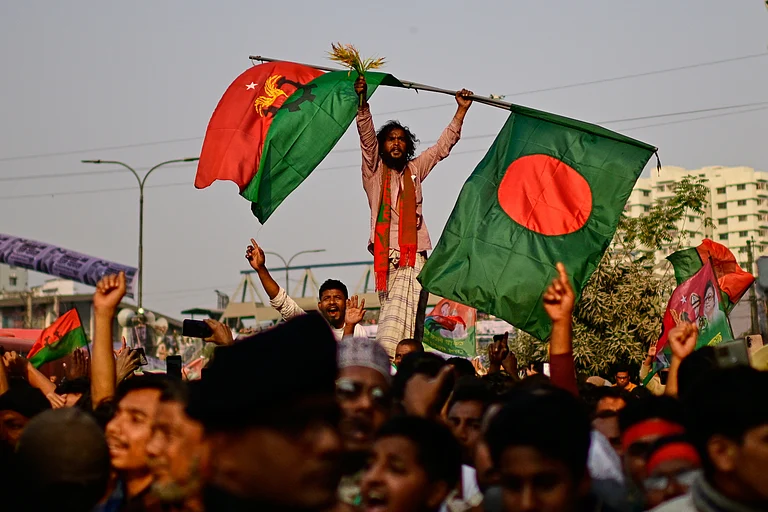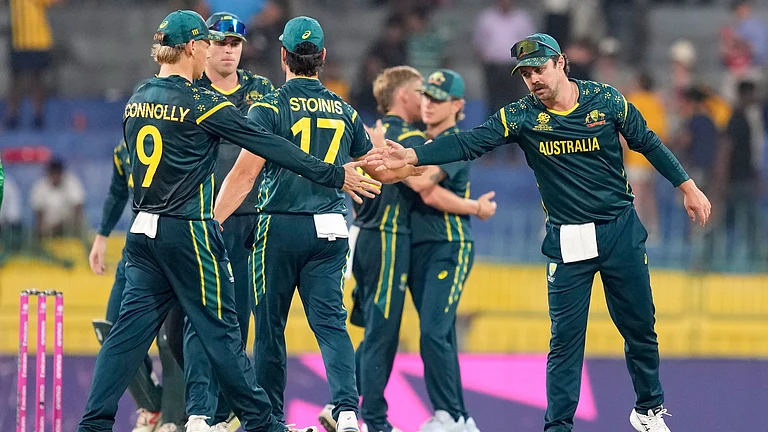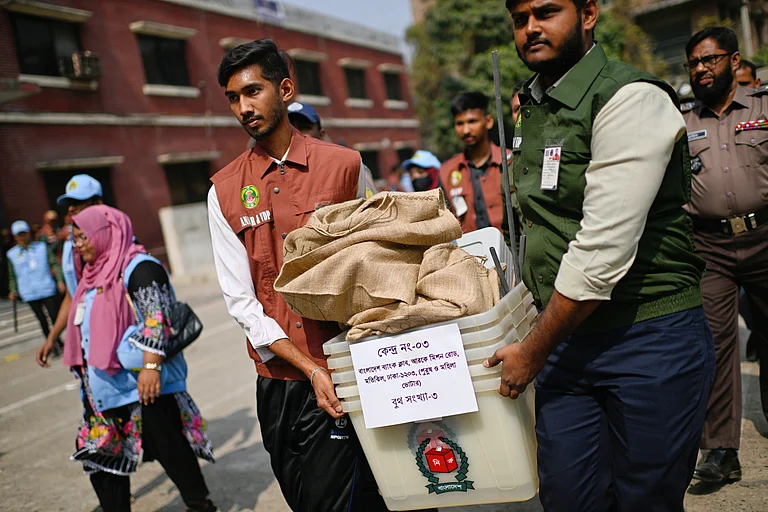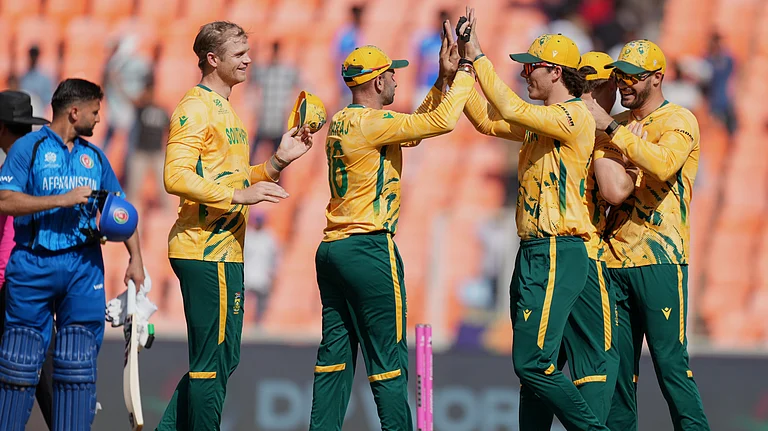On Wednesday when the Supreme Court ordered the Maharashtra Government to transfer the constituencies reserved for the OBC to the general category, it was a testimony of the myopic approach of the state towards reservation. This order is also a pointer to the fact that the OBC reservation imbroglio is a mess made by the government in Maharashtra. The MVA government is now tangled in a political and legal knot which is tightening itself.
The order of the apex court also means that elections to 386 seats from two zilla parishads, 15 panchayat samitis, 106 municipal councils and one municipal corporation will now be held without any reserved constituencies for OBCs.
Lack of coordination between the various departments and the heavyweight ministers representing the Congress Party, NCP and the Shiv Sena is the major reason for the OBC reservation fiasco in the state, said sources. Ministers Hasan Musharif (NCP), Eknath Shinde (Shiv Sena) and Vijay Wadettiwar (Congress Party) head the ministries dealing with the issue. While Musharif’s department handles the local bodies in the rural areas, his cabinet colleague Shinde is in charge of all the local bodies in the urban areas.
Senior NCP minister for Food and Civil Supplies, Chhagan Bhujbal has been spearheading the cause for political reservation for the OBCs for some years now. Through the Samata Parishad – headed by him – Bhujbal has been walking the aggressive path for the upliftment of the OBCs.
So, given the fact that such political heavyweights in the Maharashtra cabinet are involved in keeping a check on such a contentious issue, sources point out that it is the lack of a “working together mechanism” which has put chief minister Uddhav Thackeray and his government in such a political and legal tangle.
“The chief minister may be a greenhorn in governance, but what are these ministers doing? Unless this one-upmanship doesn’t stop the OBC reservation issue will drive this government out. It is as if there is some kind of paralysis when it comes to the reservation issue of the OBCs,” said an OBC leader aligned to the Congress Party.
Though the OBCs are a very powerful lobby, their demand for reservation in the local bodies has become difficult for the political parties in the state to push to the side-lines, it is too powerful to be ignored. Therefore, this is a millstone weighing this government down. With the Supreme Court striking down all the attempts of this government to provide reservation to the OBCs in the elections to the local bodies, the chief minister has been sequestered for a better part of the day with his ministers exploring newer options.
The issue of the OBC reservation in the elections to the local bodies can be traced to 1994. In this year the Maharashtra government had announced a 27 per cent quota for the OBCs in the local bodies. This included the municipal corporations, councils, nagar panchayats in the urban areas and zilla parishads, panchayat samitis and the gram panchayats in the rural areas.
There is no recent data available on the total population of the OBCs in Maharashtra. However, the Mandal Commission had put their number at 52 per cent of the state’s population. This was based on the 1931census.
The OBCs comprise 400 different castes. Politically they are an important block to the Congress Party, Shiv Sena, NCP and the BJP. Since the mid-90s the BJP, through its late leader Gopinath Munde, has been making significant inroads into the OBC block and seem to have notched up gains too. Now, the late leader’s daughter Pankaja Munde is aggressively pushing for the OBC reservation in the local bodies.
In the tribal dominated districts of the state the percentage of reservation for the Scheduled Castes and Scheduled Tribes is high as it has been allocated on the basis of the population of these categories in these districts. Following the announcement of the 27 per cent reservation quota for the OBC, the total reservation touched 62 per cent. In the Indira Sawhney versus the Union Government, the Supreme Court had in its order said that the reservation quota should not exceed 50 per cent.
However, in some of the tribal dominated districts in Maharashtra the reservation was touching 62 per cent. This was challenged in the Nagpur bench of the Bombay High Court by Kisanrao Kundalikrao Gawali, a former legislator in the Maharashtra Assembly. The Nagpur Bench of the Bombay High Court had scrapped the 27 per cent reservation and ordered by-elections as the percentage of the reservation quota was over 50 per cent.
The Maharashtra government had filed an appeal in the Supreme Court, which upheld the order of the Nagpur Bench of the Bombay High Court. In its order the Supreme Court had asked the state government to submit the empirical data for the 50 per cent reservation quota too. The Maharashtra government filed another review petition in the Apex court which too was rejected.
On March 4 this year, the Supreme Court had made the requirement of collecting the empirical data as a pre-condition for providing OBC reservation in the elections of the local bodies in the rural as well as the urban areas. The apex court struck down this reservation for the OBCs saying that it was statutory and not a constitutionally provided quota as in the case of the SC / ST and the total reservation should not exceed the 50 per cent cap.
Then on June 29, a commission was set up for this purpose. However, the collection of the data on the population of the OBCs in Maharashtra would take an enormous amount of time. Besides, due to the Covid-19 pandemic it was not possible to embark on the data collection as there was a paucity of staff and funds, is the state’s contention to the question on the delay in the submission of the empirical data on the OBCs in Maharashtra.
Since the collection of this data would take time, the MVA government issued an ordinance by amending the provisions of two legislations – Maharashtra Village Panchayats Act and the Maharashtra Zilla Parishad and Panchayat Samitis Act, 1961. This ordinance, brought out in September this year, was an attempt to provide the OBCs reservation within the 50 per cent limit. This too was stayed by the Supreme Court.
The Maharashtra government had sought the empirical data from the Centre stating that this was part of the 2011 census and therefore this ready data would help the state government in its submission. However, the Centre refused to share the data citing inaccuracies and mistakes.
According to the Supreme Court, the 27 per cent quota for the OBCs cannot be implemented with the setting up of a commission and without collecting data regarding inadequacy of representation in the local bodies. The Apex court also told the Maharashtra government that until the empirical data was not furnished, there could be no reservation of seats in the elections to the local bodies.
The MVA constituents felt that if the elections to the local bodies could be put on hold, then the OBC anger could be contained. However, the State Election Commission has announced the polls for the above constituencies on December 21.
With five days to go for the elections to the local bodies, it is expected to affect all the major political parties. Given the fact that all these constituencies will now be general constituencies, the Congress Party, NCP, Shiv Sena and the BJP are worried about the impact of the swing in the OBC votes. The bigger question is sans the reservation, will the OBCs even come out to vote. (EOM)


























